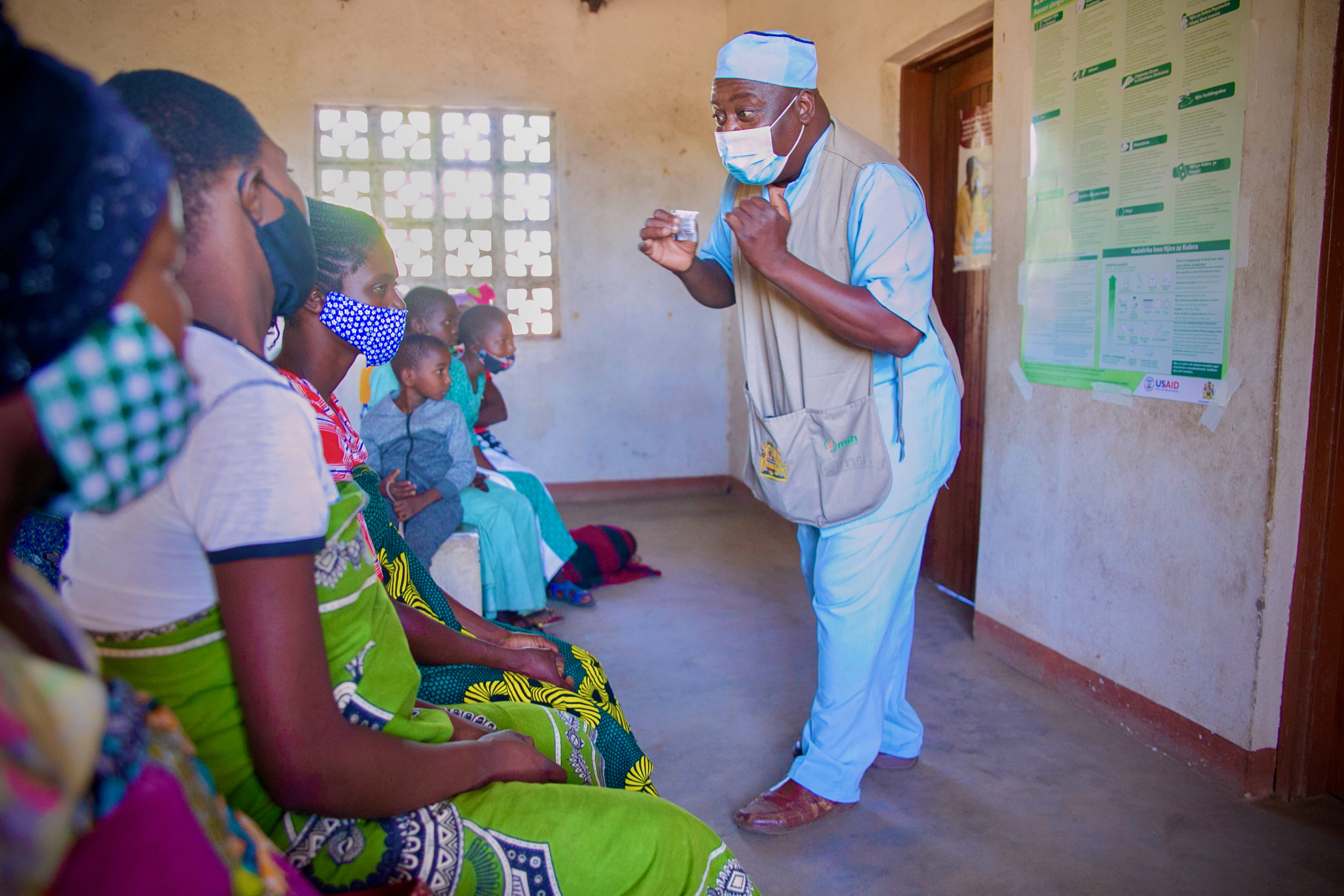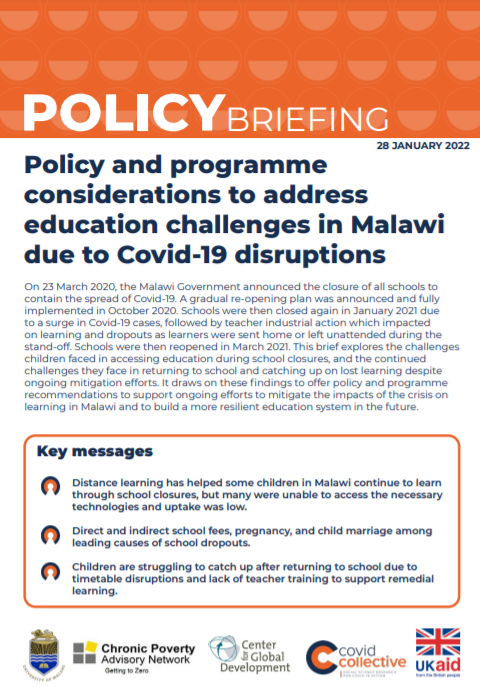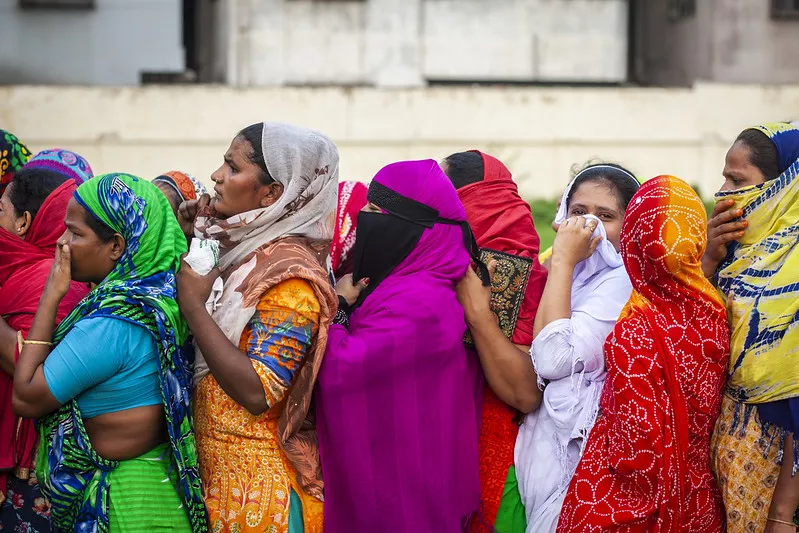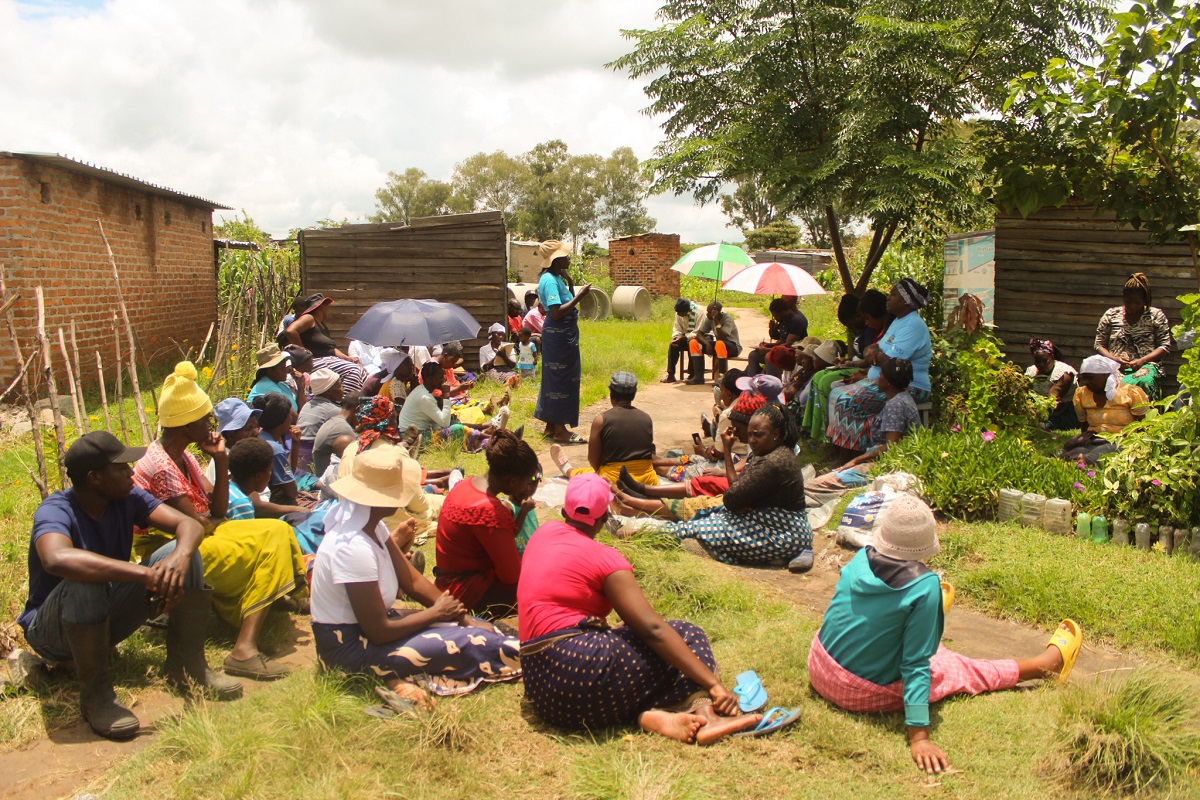The Covid-19 pandemic has had a ripple effect across the education systems of most countries. From the impacts of ill-adapted online learning in the UK to the near two-years’ lost education in Uganda due to school closures, nearly 1.6 billion learners are estimated to have been impacted by the crisis. These impacts are still only beginning to be understood, and in many countries rolling closures are still happening. But the crisis has already revealed deep-seated flaws in education systems around the world; flaws that need to be fixed regardless of a potential future shock the scale of Covid-19.
Our ongoing research on the impacts of Covid-19 in Malawi highlight critical stress points in the education sector that, while exacerbated by the pandemic, have and will continue to restrict education access and quality across the country.
Poverty
Despite the removal of school fees in Malawi, primary school enrolment saw a decline between 2016 to 2017 and secondary enrolment has remained low. Direct costs, such as books and uniforms, and indirect costs, such as limiting time resources for household support, remain a critical barrier to accessing education for children in poor households. Due to the economic strain that the pandemic has put on many households, education is one area of expenditure that households have had to reduce. School fees were the leading cause of drop-outs among boys according to a nationally representative survey in 2021.
Read the Covid Collective policy briefing on policy and programme considerations to address education challenges in Malawi due to Covid-19 disruptions
This brief explores the challenges children faced in accessing education during school closures, and the continued challenges they face in returning to school and catching up on lost learning despite ongoing mitigation efforts. It draws on these findings to offer policy and programme recommendations to support ongoing efforts to mitigate the impacts of the crisis on learning in Malawi and to build a more resilient education system in the future.
Gender norms
Although primary school enrolment in Malawi nearly reaching gender parity, disparities in secondary education are among the highest in the world. Gender-based violence, child marriage and early pregnancy are among the leading causes of girls missing out on school. A spike in teenage pregnancy of more than 40,000 and a further 12,995 child marriages were reported in the first period of Malawi’s school closures. According to the same survey, marriage and pregnancy were the leading causes of school dropouts among girls through the pandemic period.
Access to learning materials and support
The Ministry of Education, with support from partners, introduced emergency distance learning to mitigate learning gaps during school closures. Radio programmes were publicly broadcast for primary school students and online learning was extended to secondary school students. However, uptake of these programmes was low due to students’ lack of appropriate technology or electricity. Most households and communities were also ill-equipped to help students learn through these methods.
Qualified teachers and appropriate training
Teaching resources and school staffing, already in limited supply before the pandemic, have been under added strain. Disruptions to school timetables and parents’ limited capacity to support their children’s learning due to ongoing pressures caused by the pandemic, meant that children’s learning environments have yet to stabilise. Remedial learning has been challenging and many students are at risk of falling behind.
The challenges I have outlined were of course not solely created by the pandemic but have rather reveal longstanding barriers to learning that are yet to be resolved. Undoubtedly there has been commendable progress made in expanding access to education around the world, but this crisis is a stark reminder of how far the world has to go to achieve universal quality education for all.



